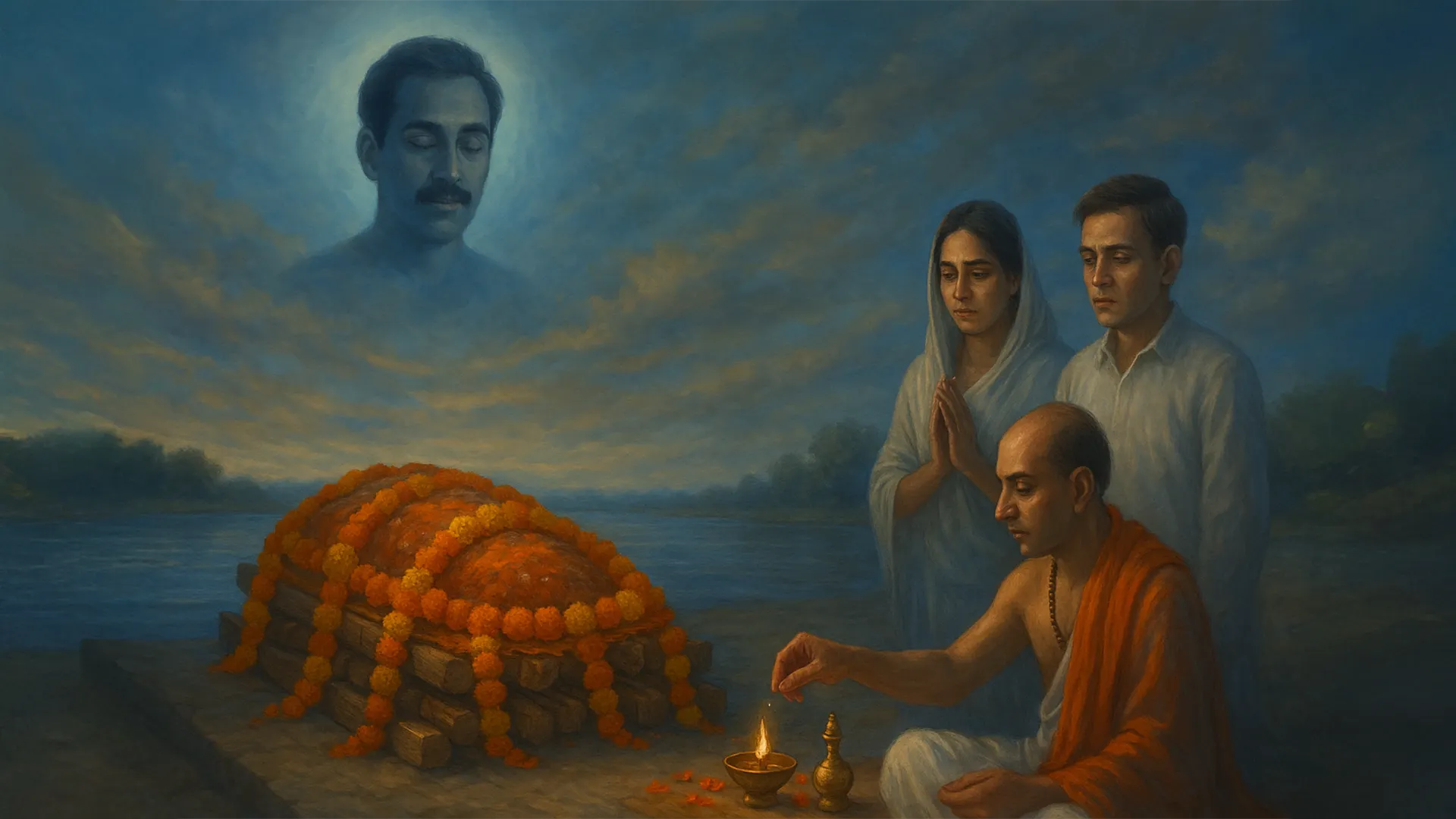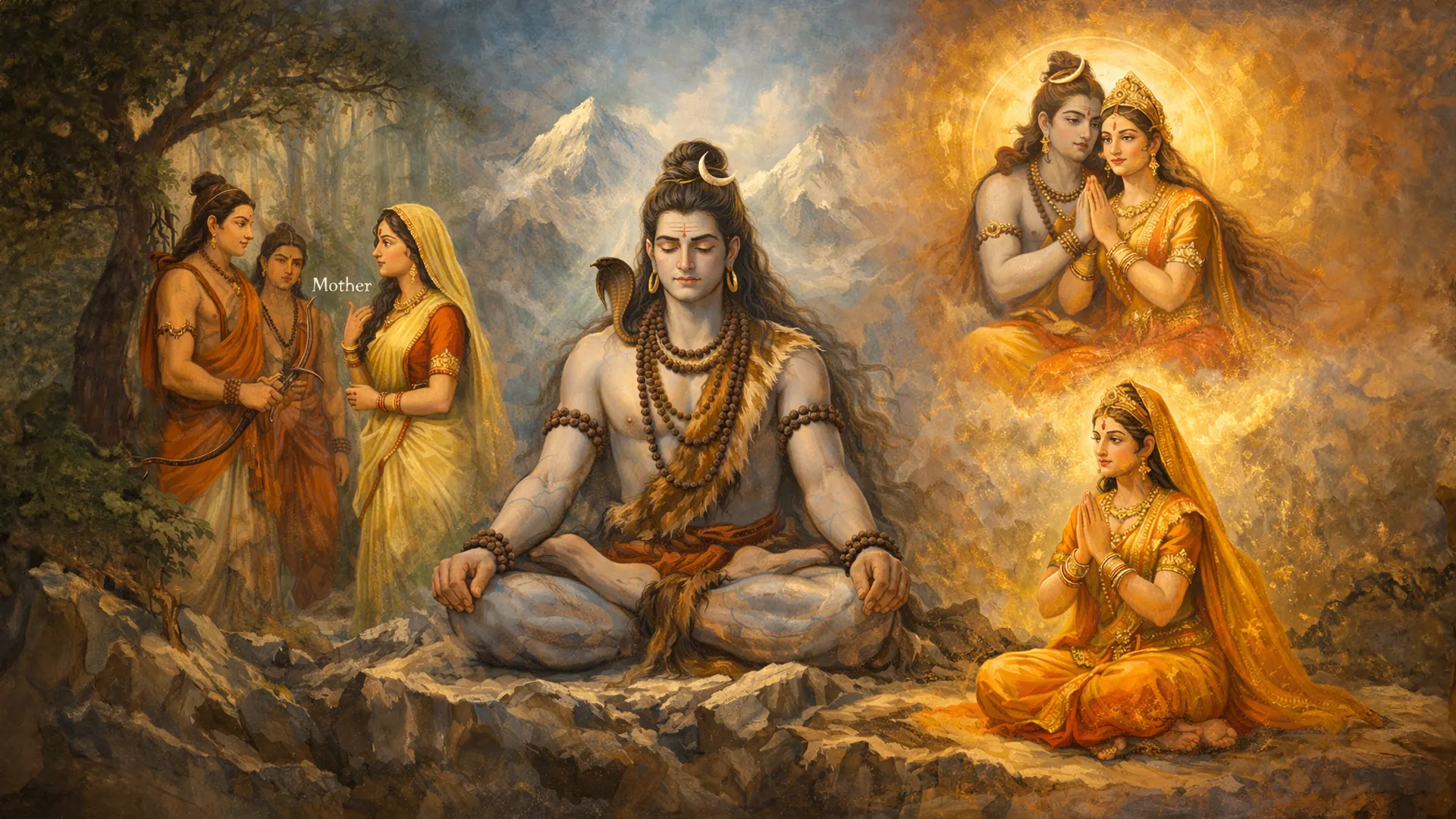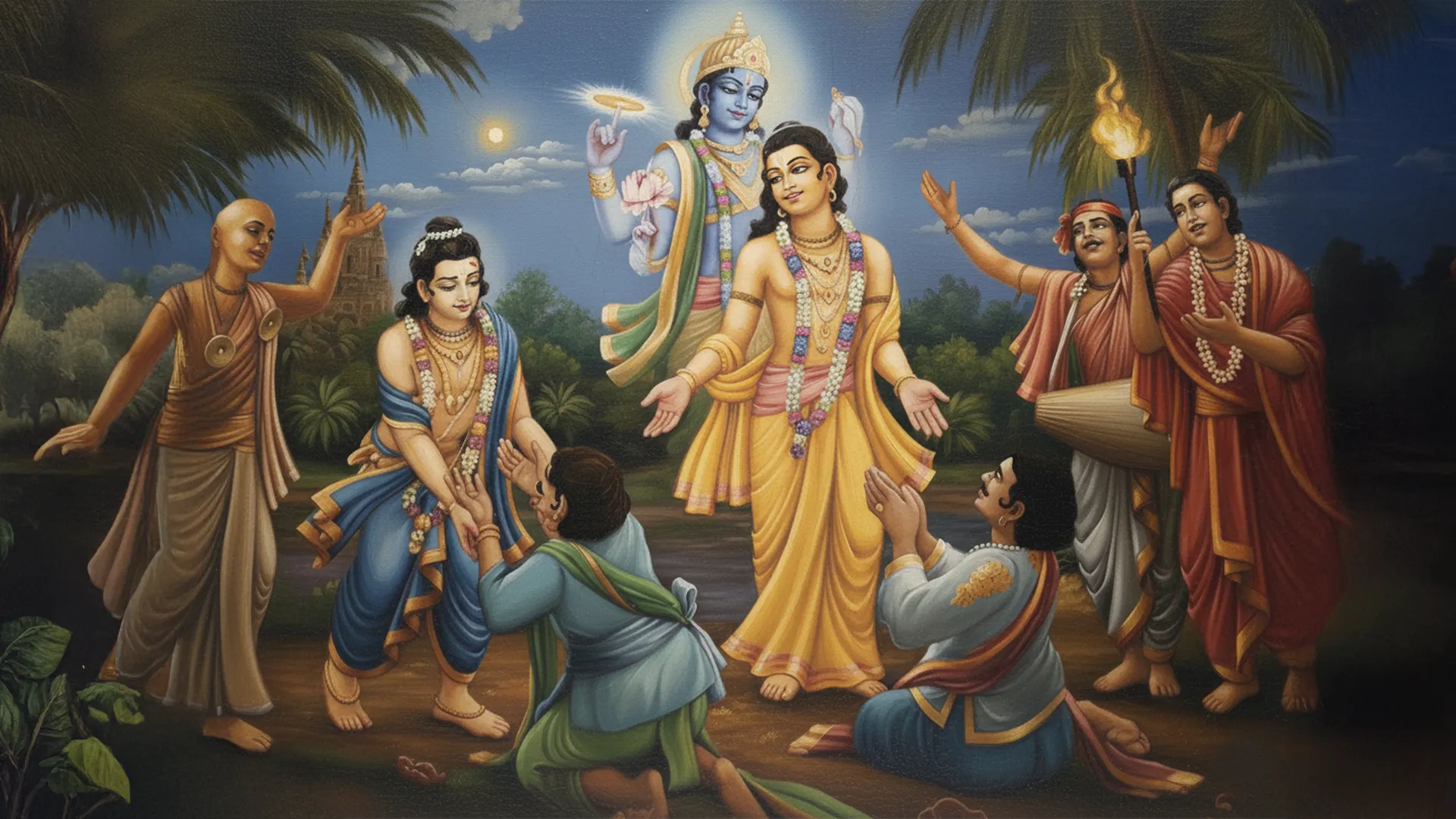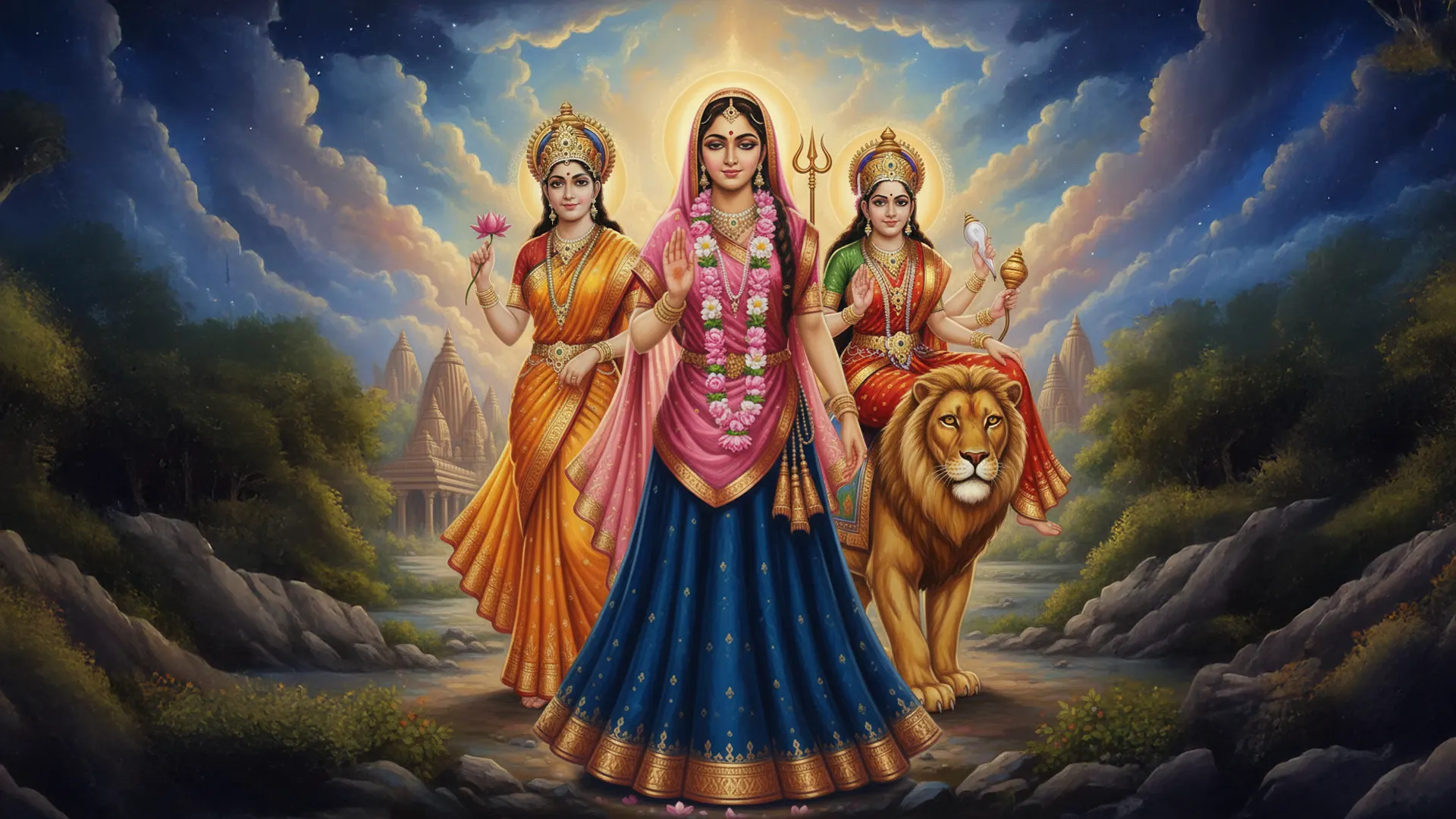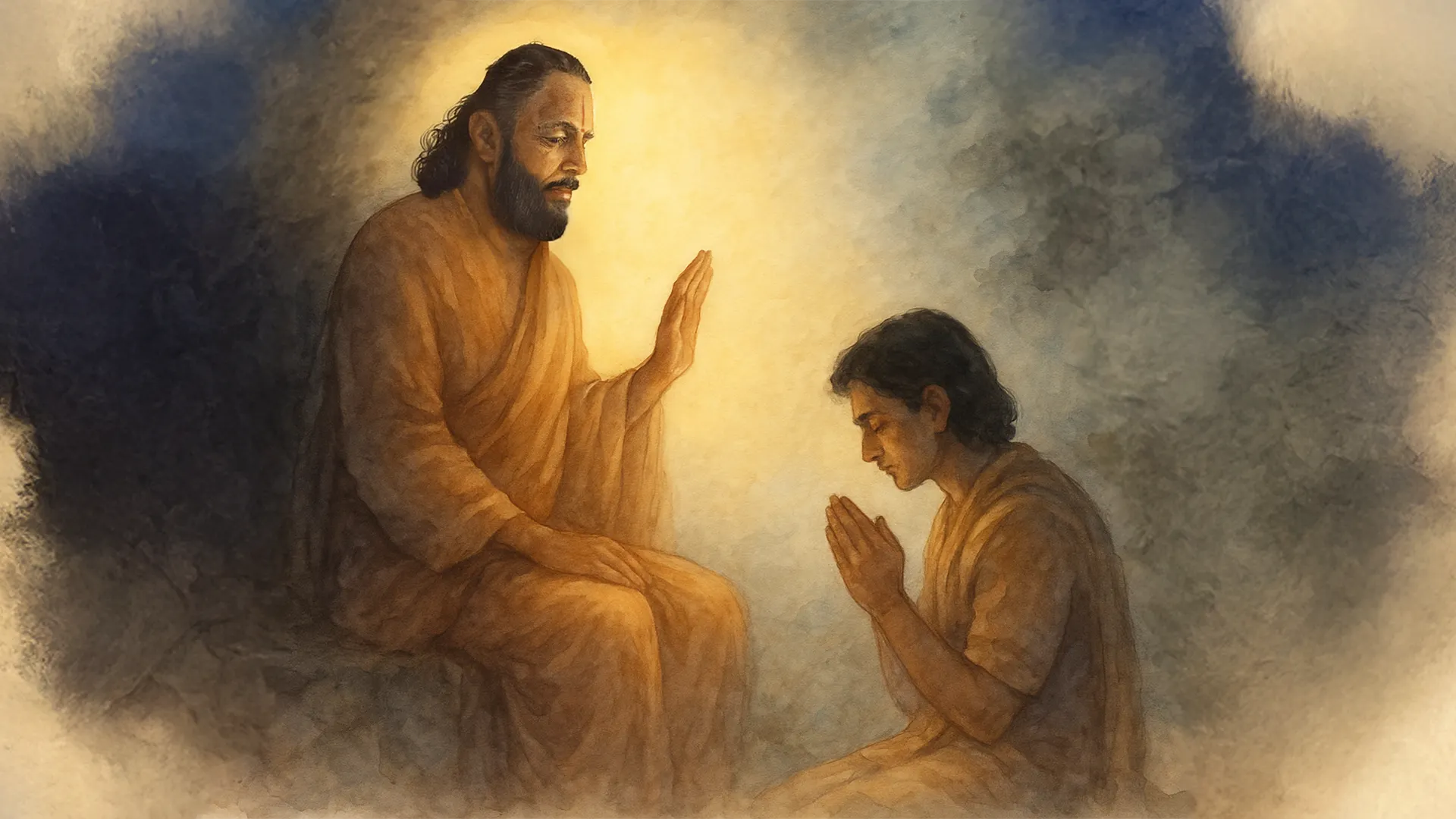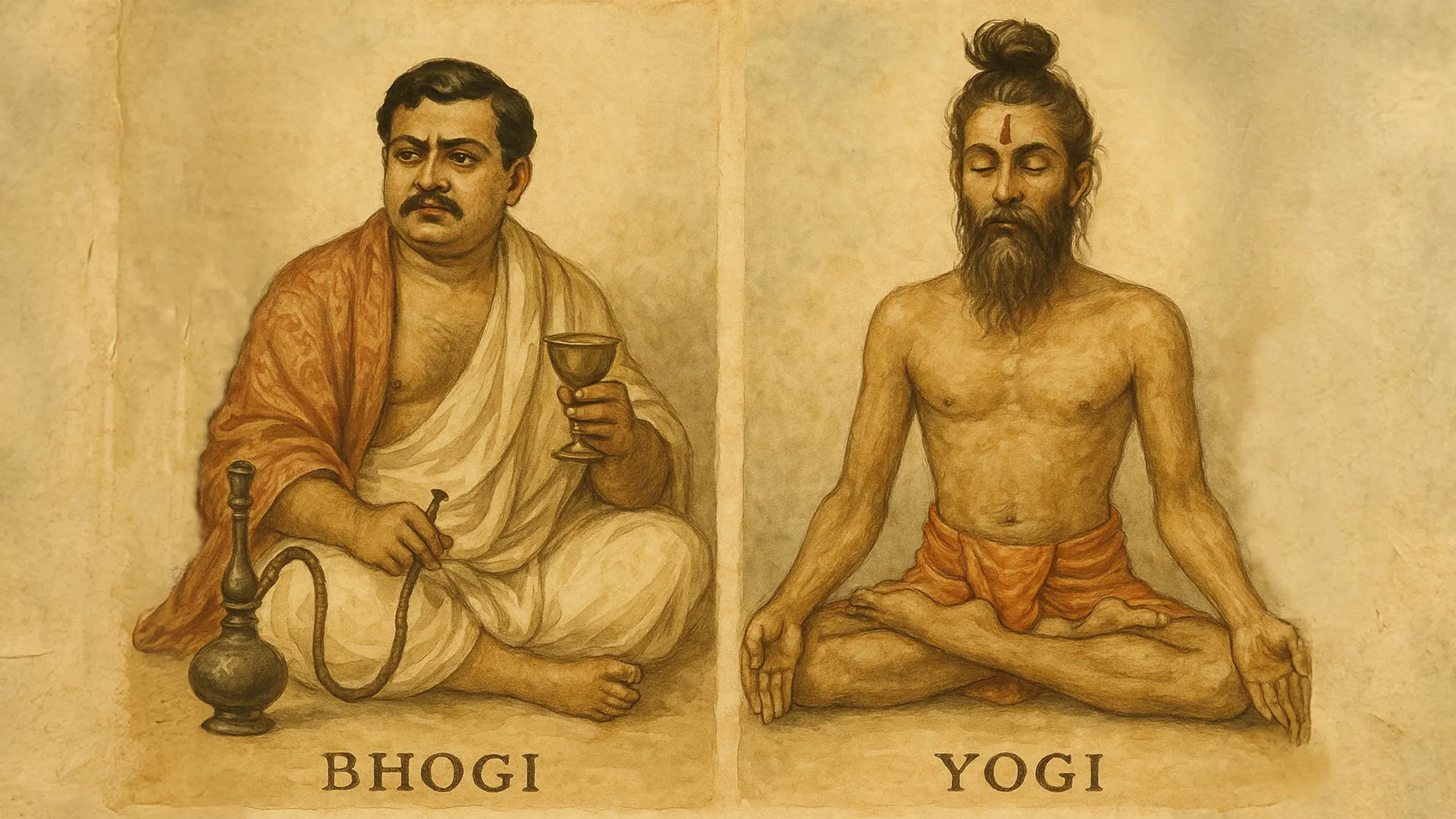Losing someone you love is an experience that can bring you to a standstill. It’s a pain that touches the deepest parts of us, leaving us feeling lost and untethered. This is a story about finding light in that darkness, drawing on ancient Vedic wisdom.
A few years ago, an 85-year-old retired Chief Engineer from Bhubaneswar reached out to Swamiji. He was heartbroken. His wife of 60 years had passed, and for six months, he'd been caught in a relentless cycle of depression, consumed by an emptiness he couldn't shake.
As he spoke of the incredible bond they shared, Swamiji gently posed a question: "How do you think your wife would have coped if the roles were reversed?" The man paused, then quietly admitted, "She wouldn't have been able to bear it." In that single moment of reflection, a strange, quiet peace settled over him. He realised that by carrying this grief, he might have, in a way, spared her from it. The sorrow was still there, of course, but it had transformed, taking on a new meaning that brought him unexpected strength and a renewed sense of purpose.
Grief Is Real, But It's Not the End
Grief is one of life's most profound emotional experiences, especially when it stems from the loss of a loved one. It often arrives uninvited, bringing with it a whirlwind of disbelief, guilt, anger, and sorrow. The loss of a loved one often elicits a profound sense of disbelief, guilt, anger, and sorrow. These emotional responses are integral to the grieving process. However, spiritual teachings remind us that while grief is a natural reaction, prolonged grief can be detrimental. It serves neither the memory of the deceased nor our personal growth. Swami Mukundananda addresses this painful reality with compassion, intertwining emotional insight with timeless spiritual wisdom rooted in the Vedic tradition.
The Vedic Perspective on Loss
Vedic philosophy offers such a comforting perspective: life and relationships in this world are naturally impermanent. What one often feels as "loss" isn't actually the end of true existence; it's more like a material connection simply falling away. Death, from this viewpoint, is a sacred transition, not a tragedy. It's governed by karma and the soul's never-ending journey. Embracing this understanding can genuinely help us shift from feeling helpless to finding a real sense of spiritual clarity.
In the Bhagavad Gita (2.13), Krishna says,
देहिनोऽस्मिन्यथा देहे कौमारं यौवनं जरा |
तथा देहान्तरप्राप्तिर्धीरस्तत्र न मुह्यति ||
dehino ’smin yathā dehe kaumāraṁ yauvanaṁ jarā
tathā dehāntara-prāptir dhīras tatra na muhyati
“Just as the embodied soul continuously passes from childhood to youth to old age, similarly, at the time of death, the soul passes into another body. The wise are not deluded by this.”
The body perishes, but the soul remains untouched, simply exchanging its outer covering. What we call "death" is only the soul laying down its worn-out garment; what we call "birth" is it donning a new one. In the grand rhythm of existence, death is just a comma, not a full stop. When viewed through the lens of spiritual wisdom, it becomes not a source of despair, but a moment of pause before the soul moves forward again.
The Kathopanishad (1.2.18) affirms this truth:
न जायते म्रियते वा विपश्चिन्नायं कुतश्चिन्न बभूव कश्चित्।
अजो नित्यः शाश्वतोऽयं पुराणो न हन्यते हन्यमाने शरीरे।।
na jāyate mriyate vā vipaśhchin nāyaṁ kutaśhchin na babhūva kaśhchit
ajo nityaḥ śhāśhvato ’yaṁ purāṇo na hanyate hanyamāne śharīre
“The soul is not born, nor does it die; it did not spring from something, and nothing sprang from it. It is unborn, eternal, immortal, and ageless. It is not destroyed when the body is destroyed.”
In Hindu tradition, a period of twelve days is observed for grieving. This sacred time is dedicated to honouring the departed, engaging in prayer, and processing emotions. However, beyond this period, we are encouraged to transcend sorrow and move forward, not through denial, but with renewed strength and clarity.
Transforming Pain into Purpose
Swamiji beautifully explains that the purpose of grief isn't just to make us feel loss, but to push us inward and upward. He explains this with a poignant metaphor of the setting sun. We do not mourn when the sun descends, for we understand it will rise again. Similarly, death should not be perceived as an end; rather, it represents a transition. Prolonged grief over what is inevitable only serves to exacerbate suffering.
The most profound lesson is to transform grief into a catalyst for spiritual growth. Allow your pain to propel you toward a higher objective, be it a connection with God, the soul, or eternal truth. Convert your mourning into detachment, and your sorrow into a quest for the divine.
This transformation does not imply that we cease to love. On the contrary, true love desires peace for the beloved. Those who have departed would wish for us to embrace life with joy, purpose, and spiritual resilience, rather than remain mired in sorrow.
We all aspire to attain happiness; however, what the world offers is often fleeting, resembling the temporary relief of scratching an itch, only for the discomfort to return. Genuine happiness, conversely, arises from within as we align our lives with a higher purpose, which is Divine love.
As Martin Luther King Jr. eloquently stated:
“If you have not found a reason in your life that you are willing to die for, your life is not worth living.”
“If you have not found a reason in your life that you are willing to die for, your life is not worth living.”
When we commit ourselves to a noble cause, we uncover the resilience necessary to transcend even the deepest sorrows.
True joy is derived not from external indulgences but from the pursuit of a greater meaning in life. Suffering becomes more manageable when it is channelled toward love, duty, or devotion.
Key Takeaways:
- Grief is a natural response, but it should not become a permanent state.
- Karma elucidates death as an integral aspect of the soul’s journey.
- In Hindu tradition, a period of twelve days is prescribed for active mourning, after which the healing process is said to commence.
- Detachment does not imply a lack of love; rather, it signifies the ability to rise above attachment to the transient.
- Transform sorrow into a spiritual pathway leading toward the eternal Self or God.
- Honour the departed by living a meaningful and joyful life.
Final Message:
Grief is not a sign of weakness; however, remaining entrenched in it is. Through Vedic wisdom, we are guided not only to cope but to elevate our consciousness. Allow your loss to serve as a gateway to liberation, rather than a source of limitation. Embrace the eternal, and you will discover a peace that transcends any worldly loss.

